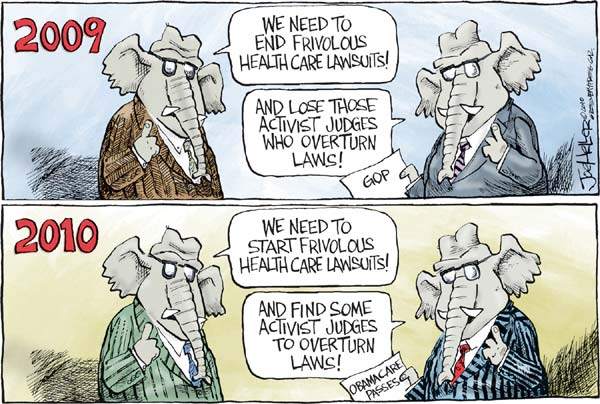Westernskies
Thinks s/he gets paid by the post
- Joined
- May 5, 2008
- Messages
- 3,864
Quote:
“I note that in 2008, then-Senator Obama supported a health care reform proposal that did not include an individual mandate because he was at that time strongly opposed to the idea, stating that, ‘If a mandate was the solution, we can try that to solve homelessness by mandating everybody to buy a house’” .
If the Senator Obama quote is true; I am almost speechless. Not as a result that Obama said it; but that the news media did not find the quote and raise it when the bill was being discussed.
The point isn't if you agree or disagree, it is that the quote is in direct opposition to the current law and should have been raised.
I know, from working around network news people that they are no mental giants and research is relegated to entry level positions. But, there are services - Lexus/Nexus and others that you can use for basic research.
News journalism would be blind if not for hindsight. It is the only 'profession' that has no standards at all. To become a beautician is more difficult.
Happy 5000th post, DEX!



